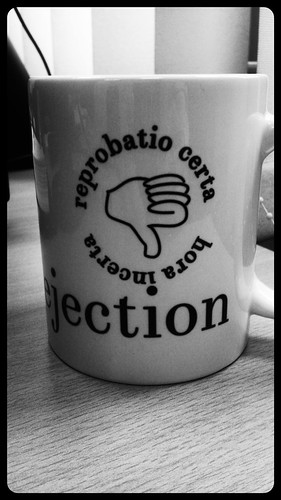Have you entered the contest to win a $25 gift card &
free books yet?
After my fifth novel, I took a break. Which ended up being a lot longer than I’d planned. I got a rejection back for novel #3 and set about revising and rewriting it. The first chapter went on to win a contest to get fast tracked in the submission pile at several publishers, but then I got my teeth kicked in and sent it through three more rounds of readers and revisions.
 As you can imagine, the constant revising and rewriting drove me nuts. I’ve never been one to make sweeping changes based on one reader’s feedback, always waiting for consensus, consulting with people I trust, weighing out the options, but there was a ridiculous amount of work put into the revisions.
As you can imagine, the constant revising and rewriting drove me nuts. I’ve never been one to make sweeping changes based on one reader’s feedback, always waiting for consensus, consulting with people I trust, weighing out the options, but there was a ridiculous amount of work put into the revisions.
Meanwhile, I went and had a baby (my third). Frankly, that pregnancy was a very difficult time for me, but that’s a whole other post. On top of all that, I had no new projects for nearly a year. I wanted to move a bit slower—I was tired after writing three manuscripts in a year, and I knew it would be difficult to get back into writing until the baby was a bit older. I made it three or four months before I just had to write again.
The book stats
Title: Façade
Genre: Historical romantic suspense
Inspiration: a what-if question based on a commercial for a new TV series
Writing dates: September-ish 2010 – February-ish 2011.
Length: Right around 68,000
Elevator pitch: A female Soviet diplomat and an American spy must work together in post-war Paris to save the peace treaty negotiations—and her father—to forestall another world war.
What I learned from writing this book
I learned that I can still write! Or . . . not. I started with an idea I loved (still do), but I could tell the style was going to be more demanding than my previous, more conversational novels. Read: I wanted this to be more literary. That put a lot of pressure on me, so I set a goal quite low, probably 500 words a day. I didn’t want to pin myself down to too rigid of an outline. I needed to let this book take its own course and its own time, I thought.
This was my first novel since the very first to be written in first person. In fact, I did more than one first person narrator, and even added in sections with a third-person present narrator to heighten the tension but . . . this book just never worked. The longer that booked dragged out, the worse it got. I did a “Half-No” in November to add 25,000 words to it, and then I think we limped along until about February to get to its final word count.
I tried. Again and again I tried. I scrapped the middle section and tried to rewrite it. But every time I came up against a wall. To this day, I still don’t know what to do with that middle section. I really like the first couple chapters. I really like the last third or so. I really don’t know how to get from A to B. That’s a major blow to a writer’s confidence: after writing several books that did work, I somehow thought I knew what I was doing.
You never really know what you’re doing.
I still submitted the first couple chapters to contests, and at first I did well: first place. The highest score in another contest, out of all entries in all categories in the first round—in fact, out of 334 points, I got 332.
But then the final round judge, an editor at a major house, read my first few chapters and synopsis and really didn’t like them. She used an exclamation point to express how bad they were and placed my entry dead last. (It really didn’t feel like an “honorable” mention.) I pitched the book to an editor at a different house, and she was very nice and encouraging, but wasn’t interested. She offered to recommend some agents for the book; her assistant never returned my email.
Once again, I was left with a single foundering project. My other book was out on submission, but . . . I was so done. I wasn’t even sure I would be interested in accepting an offer at that point.
Then something happened to our family that only happens on television. Again, this is a whole ‘nother post, but a particularly unexpected death took place in my extended family. With that kind of suffering in the world—with the people I’ve known and loved all my life—I couldn’t face made up people and their problems.
It came down to this, I realized one day walking out of the library: I started writing because it made me happy. It wasn’t making me happy anymore. At all. So I gave myself permission, and I quit. Perhaps forever. But at least through the end of summer 2011.
I don’t know if I’d take back any book I’ve written, but if I could forget a year in my writing career, October 2010 to October 2011 would probably be it.
Have you ever quit writing?
Photo credits: Journal of Universal Rejection mug—Tilemahos Efthimiadis; quit button—Tizzie, both via Flickr & CC



I came to the same conclusion. When writing fiction stopped making me happy — and worse, when it made me miserable — I decided it was time to quit. I might go back and try again later, but right now I’m concentrating on nonfiction when I try to write at all.
It’s so hard when something you used to love doesn’t bring you joy anymore! Good luck, Deb.
Yes. I quit writing for five years once … I’m sorry to hear you had this experience, but it has probably made you a better writer in the long run, I’ll bet.
I’m sorry to hear you had this experience, but it has probably made you a better writer in the long run, I’ll bet.
That’s a long time! I took a five year break from writing starting in college, but that was more of an amicable separation.
My life experiences during this time were pretty dang crappy at times, but I believe that they are what I (all of us, perhaps not me in particular) needed, even if I don’t yet understand the reasoning yet. I hope you’re right and the same applies to my writing . At the very least, it helps keep me humble, eh?
. At the very least, it helps keep me humble, eh?